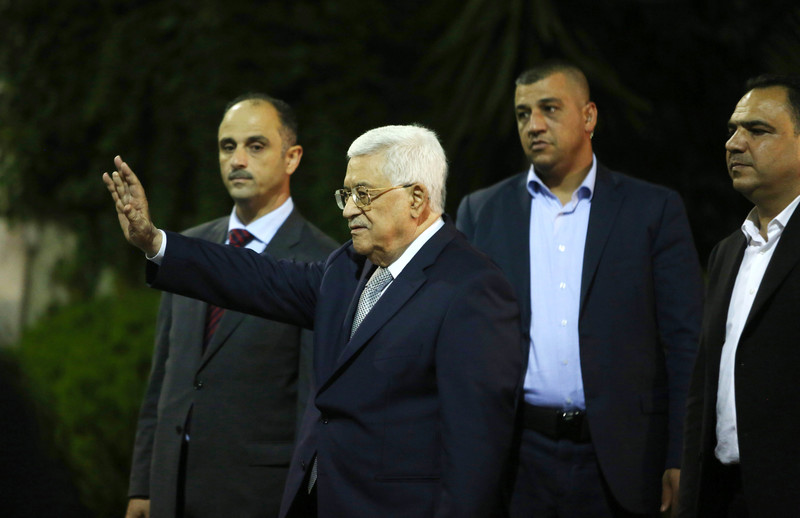Australia/Israel Review
Editorial: The PA’s Priorities
Feb 27, 2019 | Colin Rubenstein

This month many have been grieving for Ori Ansbacher, a 19-year-old Israeli woman who was brutally raped and killed in the Jerusalem Forest on Feb. 7, in what Israel declared to be a Palestinian terrorist act. Israeli authorities arrested Arafat Irfaiya, who claimed he had done it to become a “martyr” for the Palestinian cause.
Ori’s murder is a tragic reminder of the way in which terrorist “martyrdom” is incited and encouraged by the Palestinian Authority (PA) – and then rewarded with generous lifetime salaries.
The shocking attack itself received little attention in the international media until Israel’s Prime Minister Benjamin Netanyahu declared that, in response to the murder, Israel would reduce the tax revenue it passes on to the PA by the amount of the payments the PA provides to terrorists and their families.
On Feb.16, Israel announced it will withhold NIS 502,697,000 (A$194 million) in PA tax revenues, the amount Israeli officials say the PA paid in stipends to terrorist prisoners in 2018. The decision was based on an Israeli law passed last year that had not previously been implemented due to security service concerns that it could destabilise the West Bank.
Following Israel’s decision to cut funds, PA President Mahmoud Abbas said the PA would refuse to accept any Israeli tax transfers to the PA if Israel goes ahead with deducting the amount the PA uses to reward terrorists. Meanwhile, the PA Minister for Civilian Affairs, Hussein al-Sheikh, insisted to journalists that “if we have one dollar, we will spend it on the families of our martyrs and prisoners.”
The PA is shamelessly prioritising the “pay for slay” program over the economic welfare of the entire Palestinian population.
The “pay for slay” payments have long been criticised as incentivising terrorism because not only do they reward terrorism but they also provide a salary that is much higher than the average Palestinian wage or social welfare assistance allocated to needy Palestinian families by the PA budget.
The PA has continued to defend its blood money despite strong international condemnation – especially from Australia and the US who have cut funds to the PA over this issue.
Last March the US passed legislation known as the “Taylor Force Act” which is withholding US$200 million in financial aid to the PA until it takes credible steps to end its program of making payments to families of those who are imprisoned or killed after committing acts of terror against Israel.
Similarly, last July Australia’s then Foreign Minister Julie Bishop decided to re-allocate to UN programs all previously provided direct funding to the PA, concerned that Australian funds could be used to increase the PA’s capacity to fund Palestinians involved in terrorist activities.
The US Congress has also passed the Anti-Terrorism Clarification Act, which provides for US courts to have jurisdiction in cases against any foreign party accused of supporting terrorism that accepts US funding.
As a result, if the PA receives American aid, US victims of Palestinian terrorist attacks would be able to file lawsuits against the PA and PLO in US courts for compensation. In response to the US legislation, the PA is rejecting any American aid, meaning that it will forfeit over US$60 million in security assistance.
The PA’s refusal of US aid and Israeli revenue transfers are no small matter. Over the past decade, the US has been by far the largest foreign supplier of aid to the PA. And the Israeli tax transfers constitute around half of the PA budget.
Moreover, as the PA appears to be on the brink of a self-imposed economic crisis, its political institutions are also in disarray.
President Abbas arranged for the dissolution of the Palestinian parliament, known as the Palestinian Legislative Council (PLC), in late December. Then on Jan. 29, he accepted the resignation of the PA cabinet, led by Prime Minister Rami Hamdallah, in a move Abbas is also thought to have arranged.
These moves are widely seen as a means to further consolidate power in the hands of Fatah and the ageing President Abbas, now 83, whose rivals are jostling to be first in line for succession.
Meanwhile, Jan. 5 marked 14 years since Abbas was elected to a four-year term of office as President of the PA.
Abbas is said to be particularly concerned that Hamas will seek to take over the West Bank, as it has Gaza, whenever he leaves office. This only highlights how much these two groups, each ruling substantial proportions of the Palestinian population, remain irreconcilably and bitterly divided. As Evelyn Gordon highlights in this edition, their hateful rivalry has even led to a major medical crisis in Gaza, with both sides prepared to allow needy Palestinian patients to suffer in order to spite the other.
It is therefore not surprising that Israeli-Palestinian peace prospects are not front and centre in the upcoming Israeli election on April 9.
Sadly it is more than clear to most Israelis – and indeed to most knowledgeable observers – that the prospects for a peace agreement with the Palestinians currently remain distant.
The PA is making its priorities clear – it would prefer economic collapse rather than ending its policies of incitement and rewarding terrorists.
Its political institutions are in ruins, and the PA appears to be driving Palestinian civil society to a breaking point through its vicious crackdown on dissent, including widespread torture, as even Human Rights Watch documented in a study published last October.
A two-state peace remains ultimately desirable for both Israel and the Palestinians. However, anyone who thinks it is currently achievable through negotiations, or that an Israeli unilateral withdrawal to allow the creation of a Palestinian state would be a good idea, is simply not paying attention to what is currently transpiring in Palestinian society and politics.
Tags: Fatah, Israel, Palestinians, Terrorism






